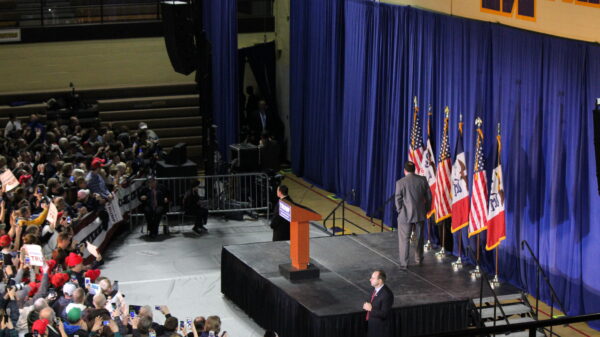As India faces one of its biggest threats to democracy yet, KCL Indian Political Society and KCL Political Economy hosted a debate on the 18th of January. The debate was comprised of two sides, each debating “CAA and NRC: Anti-Muslim?†With three members each, the tension between the opposition and proposition was more than visible, and the audience was left tethering towards the edge of their seats. Both societies made an effort to keep audience involvement at a high, which contributed to the overall success of the event.
The debate started off with introductions from Rhea Kher, President of KCL Indian Political Society and Madhav Setia, President of KCL Political Economy. Both gave eloquent speeches, praising each other’s part in making the debate a reality. Kher’s speech lauded Setia for his staunch support for the Indian Political Society. Setia started off with a beautiful poem, and ended with calling Kher “a girl with a vision.†The speeches then concluded to give way to Speaker of the House, Vidisha Madan, who then announced the rules and initiated the debate.
Each speaker from the proposition and opposition was given 5 minutes to present the line of the argument and then a rebuttal time of 5 minutes was provided after each speech for contention. Each speech was met with, no doubt, a heated rebuttal, and the audience were left with questions of their own.Â

Opposition and proposition with Speaker of the House and Presidents of KCL Indian Political Society and KCL Political Economy Society.
The opposition included Anunay Chowdhury, Vatsav Soni, and Rijul Varma. Chowdhury, a Law student at King’s based his argument on a deep reading of the Citizenship Amendment Act and vehemently defended it. He pointed out that the National Register of Citizens is not anti-Muslim, but Amit Shah is. Going on the same line, Varma based his argument on the positive effects of the CAA and NRC and argued that CAA and NRC promote positive discrimination. He went on to say that by not giving citizenship to Muslims from Pakistan, Bangladesh, and Afghanistan, the government was putting the needs of their minorities first. Lastly, Soni took a different approach to them all and said that the CAA isn’t anti-Muslim, but they anti-Indian. He also added that the NRC is absolutely unconstitutional and by communalizing the issue, we’re trivializing it. As seen, each participant had a different take and each speech brought about an interesting discussion that unraveled with caution.
On the other side, the proposition consisted of Udit Mahalingam, Suhail Bhat, and Priyadeep Dasmunshi. While the opposition mentioned positive discrimination, the opposition brought up interesting points about structural inequalities present not only in the caste system but also in India, as a whole, regardless of religion. Mahalingam brought up Article 14 which bestows equal rights on every citizen of India regardless of creed, caste, and religion. Bhat’s argument tried to answer complicated questions about the selection process behind the CAA – he further backed-up his arguments with justifications of when army men were treated as second-class citizens. Lastly, Dasmunshi, a PPE student, used his classroom learning in order to practically analyze the debate and his opponents’ claims. The three collectively speculated on the nature of NRC despite the proposition making claims that the NRC can’t be analyzed since clear guidelines haven’t been passed for it yet.

Committee members of KCL Indian Political Society and KCL Political Economy Society.
After the opening statements and rebuttals, the floor was thrown open for the audience. Five members of the audience, including me, were fortunate enough to be recognized by the Speaker of the House, and each question elicited a healthy discussion. The proposition received most of the questions, and each question was allowed one follow-up. Each member answered with due diligence and the utmost respect for the audience. Despite not having got a satisfactory answer to my question, it was humbling to see a healthy discussion and a lack of personal attacks.Â
When the big rebuttal came out, the members of the opposing teams felt that audience questions were more important as they brought in a wider perspective. The Speaker of the House recognized this motion but called for 10 minutes of rebuttal as protocol suggested and then threw the floor open for the audience again. This time, the opposition answered questions along with the proposition and the audience questions brought in other facts and important arguments into the discussion. Soni, at one point, disagreed with his fellow team members and decided to separate his arguments from them, physically and argumentatively.Â
This interesting twist brought the debate to an end and the audience was then able to select the Best Speaker and Best Rebuttal. Soni and Dasmunshi won respectively, and rightly so given their enthusiasm and persuasive communication. This is not to say that the others weren’t good – each participant brought their own perspective compiled in a unique and thoughtful manner.
All in all, the debate was a success and I, personally, look forward to many such events from KCL Indian Political Society and KCL Political Economy Society. Kudos!










